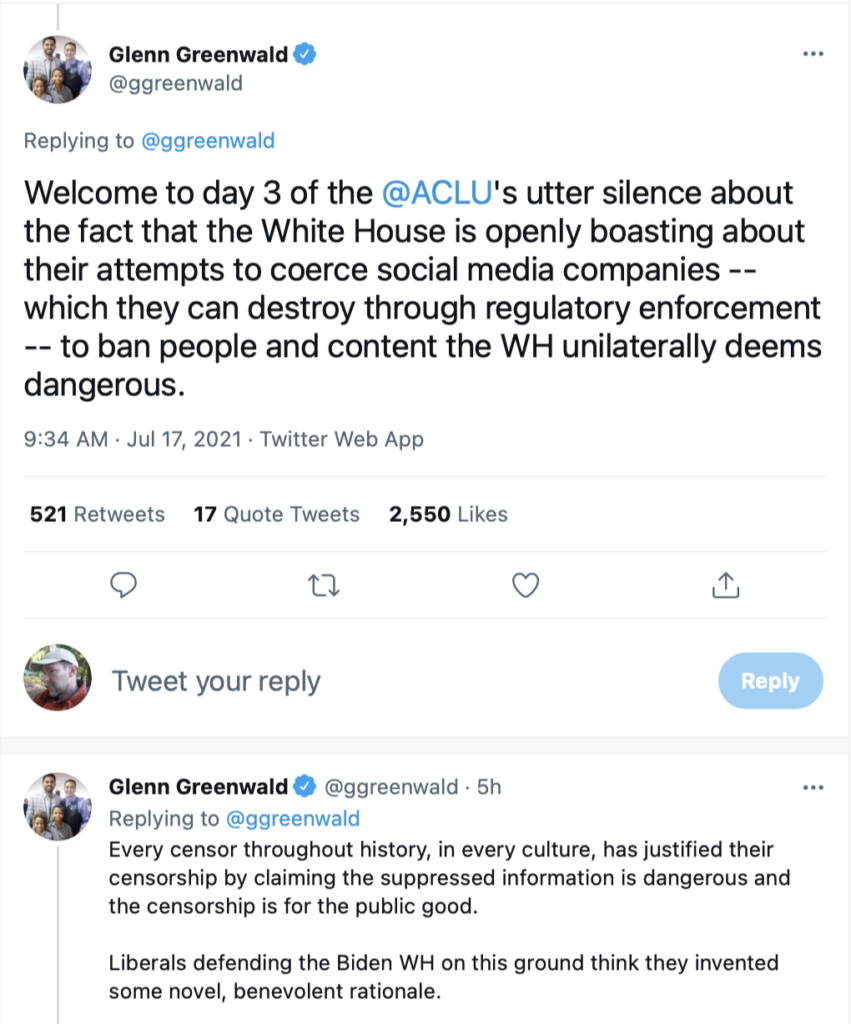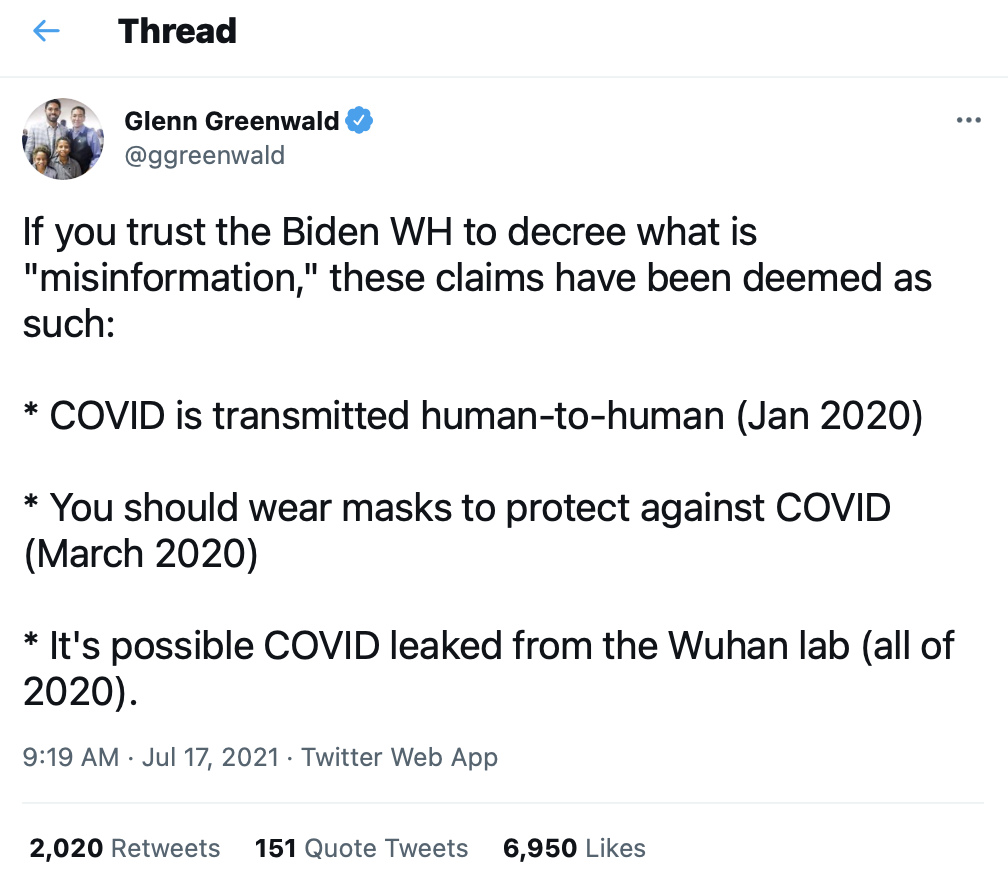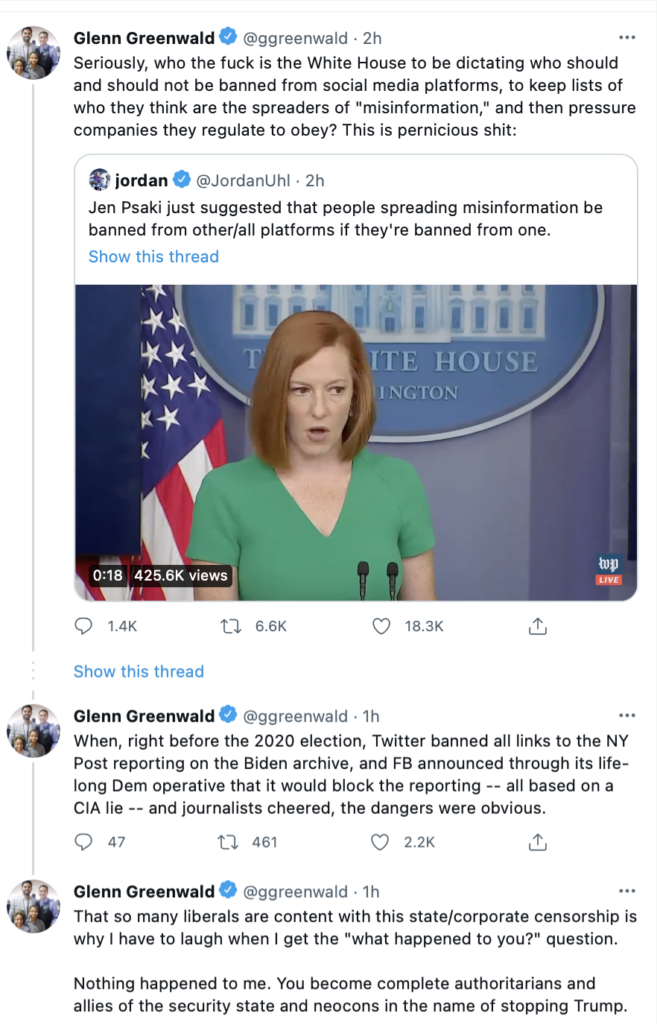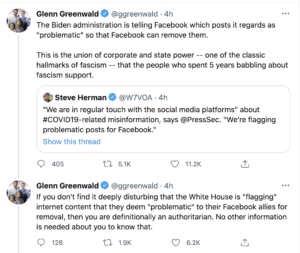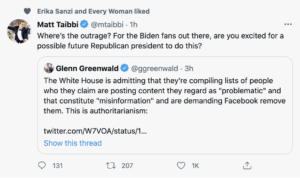Ben Franklin: It’s “a Republic, if you can keep it.”
On September 17, 1787, as delegates left the Constitutional Convention in Independence Hall, Benjamin Franklin was asked what kind of government do we have?
"A Republic," he replied, "if you can keep it."
I am stunned at the willingness of many on the political left to ignore the First Amendment out of convenience when it comes to their favorite issues. As I predicted several days ago, the ACLU has been silent. Many of us who used to fear government censorship are publicly warming up to that idea. In recent days, Glenn Greenwald has commented repeatedly. For example:
Those who remember the recent past the federal government be able to declare and enforce its version of the "truth" re COVID. Here's a few examples:
There is apparently something in the water that is causing Americans to become obtuse, unable to understand their own history, their own government and nuance. Many people who hear my opinions of these topics accuse me of liking it when malevolent and stupid people kill other people by spreading lies about COVID. They think I like it when harmful false ideas are spread through social media. Many of them are proud Americans who wave flags and celebrate the Fourth of July, but they don't understand the function and power of the First Amendment and free speech (the latter of which is a broader issue). It's as though they don't understand that many truths are complex, making them unendingly imperfect and tentative. It's as though they don't understand that by allowing the marketplace of ideas to run its course, we will be in the best position to understand what is going on around us on every topic and every issue. It's as though they want to completely trust a government that excels in spewing out lies, year after year, administration after administration.
Is it too much to ask that Americans understand their own Constitution before willingly shredding parts of it?

